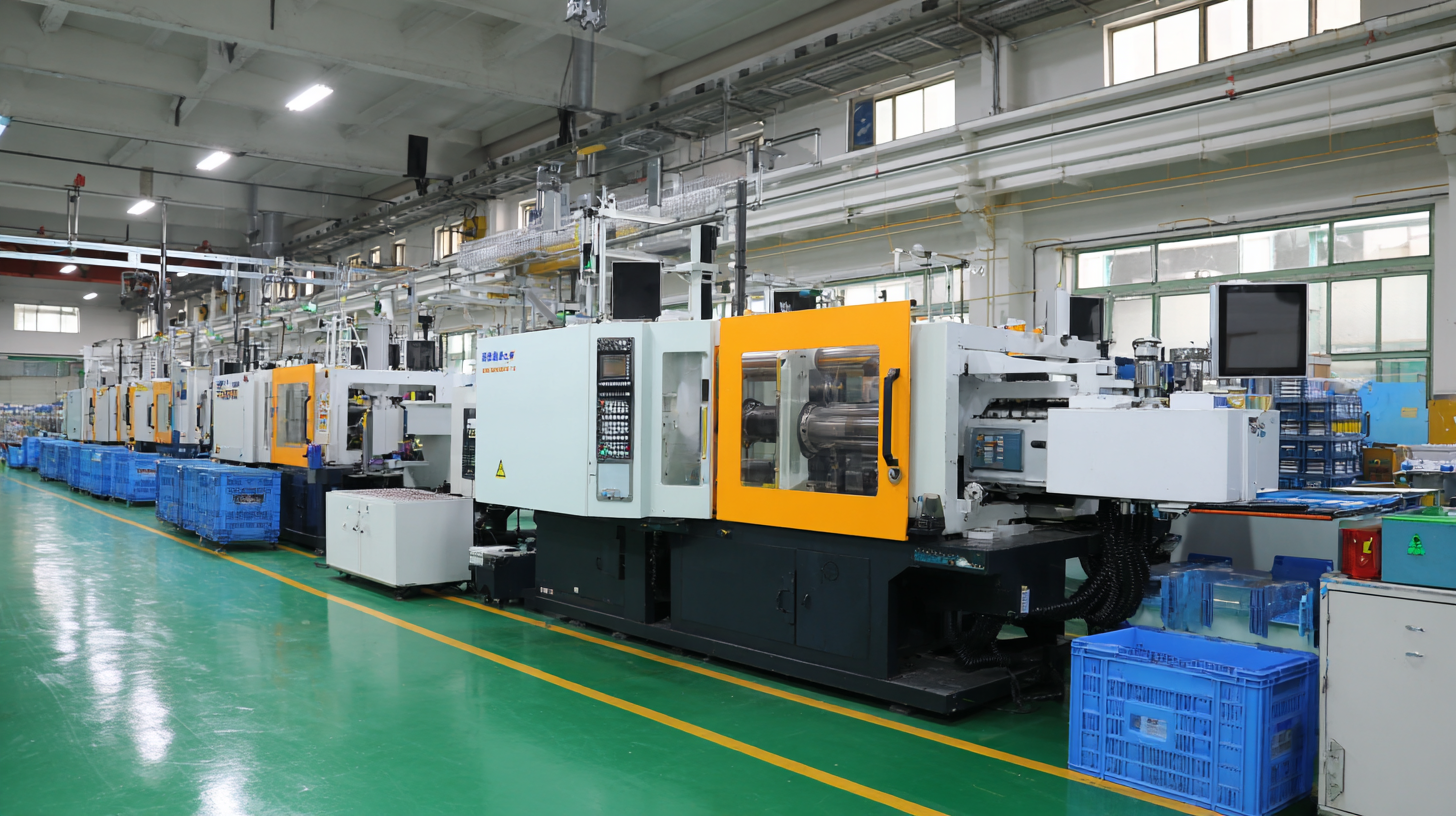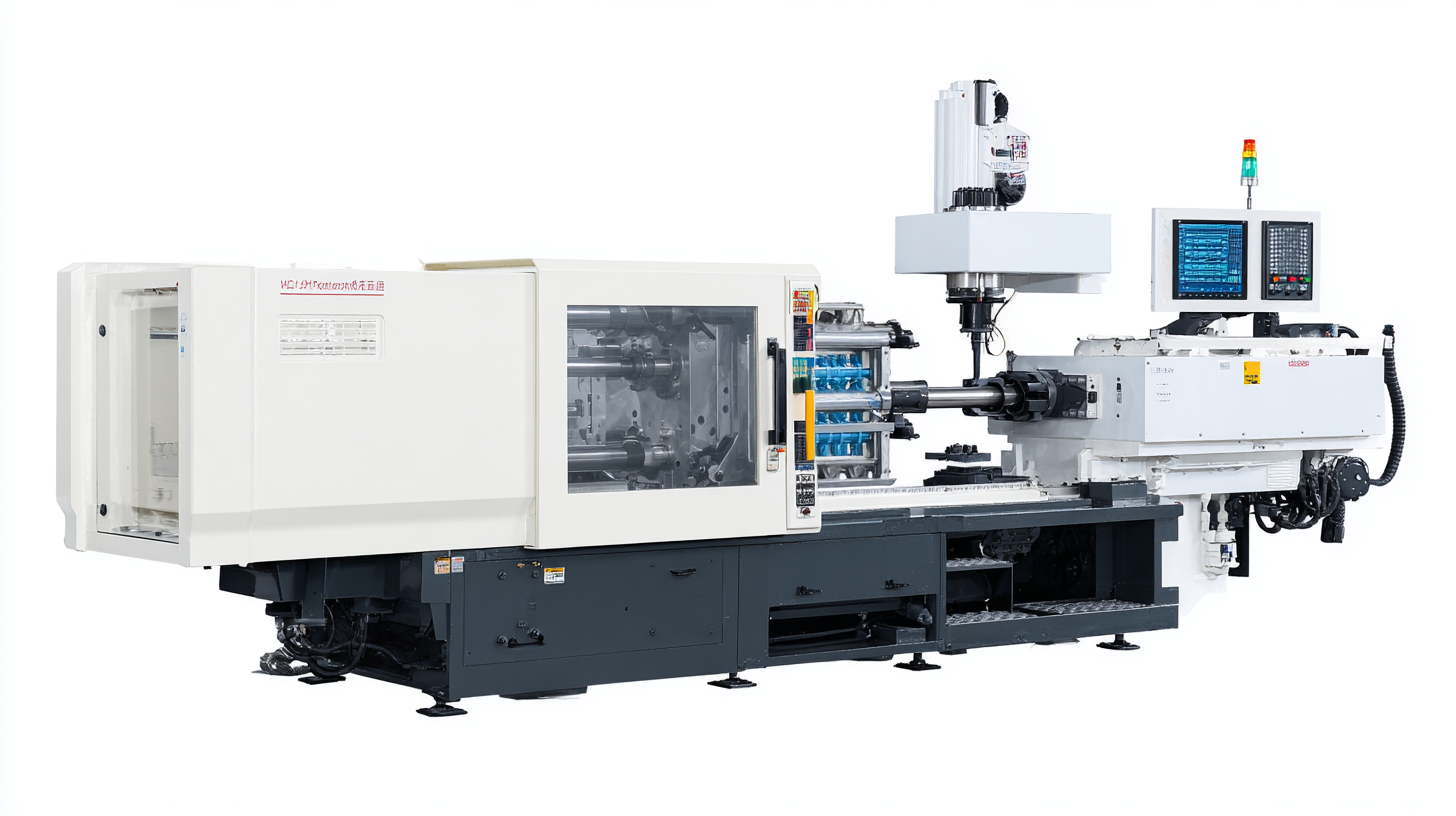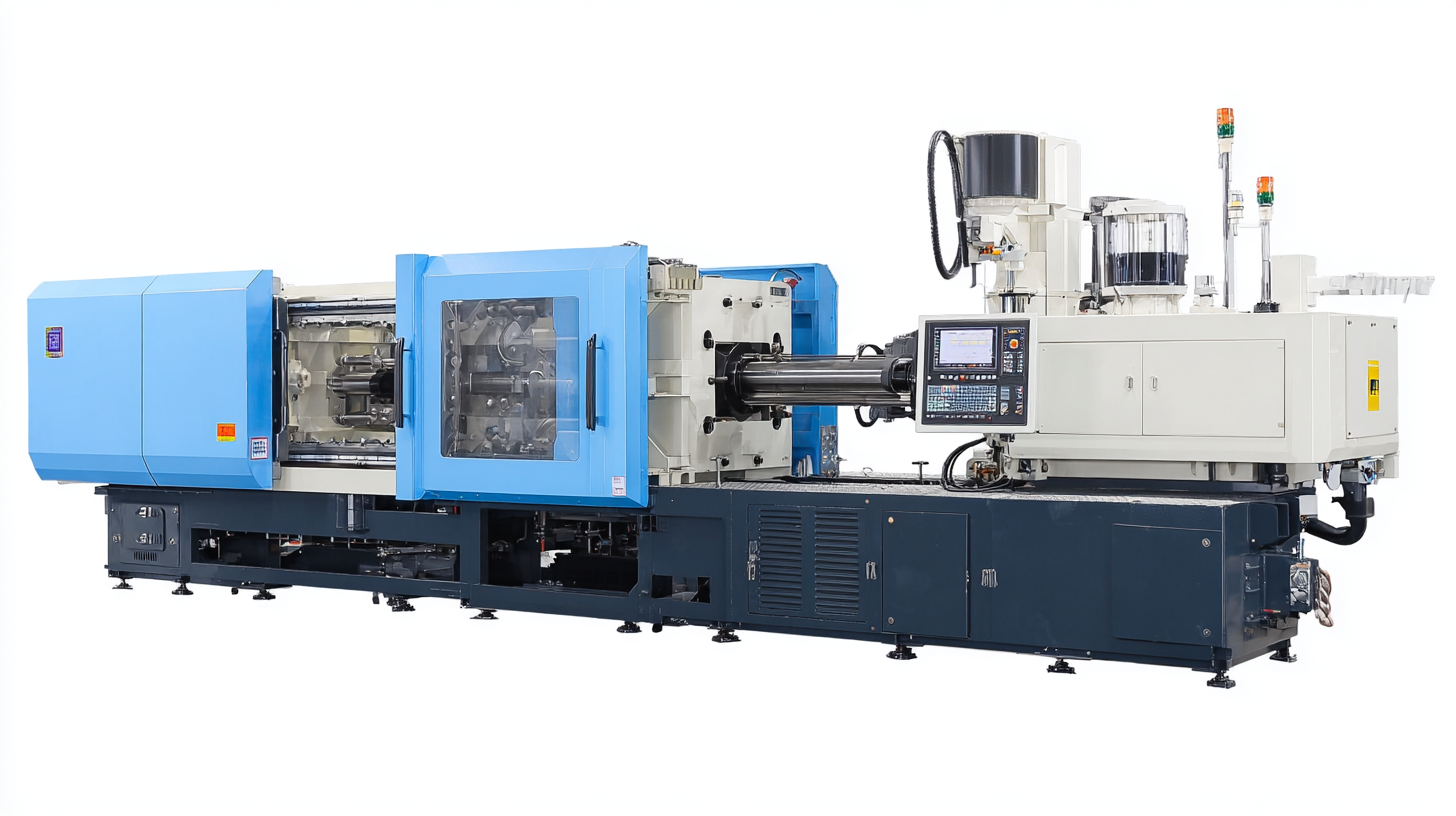
How to Choose the Best Preform Injection Molding Machine for Your Business
In today's competitive manufacturing landscape, selecting the right Preform Injection Molding Machine (PIMM) is crucial for businesses aiming to optimize production efficiency and product quality. The global injection molding market is projected to reach $371.7 billion by 2026, highlighting the increasing demand for advanced molding technologies. According to industry reports, the choice of PIMM significantly impacts not only the production speed and energy consumption but also the flexibility to produce various products, from packaging containers to automotive components. With a diverse range of PIMM types available, each tailored for specific applications, understanding their characteristics and suitability is essential for manufacturers to align machinery capabilities with their product lines. By making informed decisions, businesses can enhance operational performance, reduce costs, and sustain competitiveness in an ever-evolving marketplace.

Understanding the Importance of Preform Injection Molding Machines in Manufacturing
Preform injection molding machines play a crucial role in the manufacturing industry, particularly in the production of plastic containers and packaging solutions. These machines are engineered to create preforms that serve as the foundation for various bottles and containers, ensuring precision and efficiency in the production process. Understanding the importance of these machines helps manufacturers recognize how they can impact operational efficiency, reduce waste, and enhance product quality.
The effectiveness of preform injection molding machines lies in their ability to produce uniform and high-quality preforms that can withstand the molding process. This consistency not only reduces manufacturing defects but also ensures that the final products meet stringent industry standards. Furthermore, advancements in technology have led to the development of machines that offer energy efficiency and faster cycle times. These features are vital for businesses looking to optimize their production lines while minimizing costs, thereby leading to increased competitiveness in the market.

Key Factors to Consider When Selecting a Preform Injection Molding Machine
When selecting a preform injection molding machine, several key factors should be at the forefront of your decision-making process. One crucial aspect is the machine's clamping force, which determines the pressure applied during the injection process. According to industry standards, a clamping force of at least 2,000 to 3,000 psi is often recommended for producing high-quality preforms, ensuring sufficient material consolidation and reducing the likelihood of defects.
Another vital factor is the shot size relative to your production needs. Recent market analyses indicate that companies producing over 10 million preforms annually should consider machines with a shot volume varying between 100 to 250 grams depending on the product specifications. Additionally, it's essential to evaluate energy efficiency, as machines with advanced servo-driven systems can improve operational costs by up to 30%, aligning with the growing trend of sustainable manufacturing. Choosing the right features will not only enhance your production efficiency but also contribute to your bottom line in the long run.

Evaluating Supplier Credentials: Certifications and Industry Experience
When selecting a preform injection molding machine, evaluating supplier credentials is crucial to ensure a reliable partnership. Certifications such as ISO 9001, which demonstrates a commitment to quality management systems, can be a strong indicator of a supplier’s operational excellence. According to a recent report by the International Organization for Standardization, businesses with such certifications experience a 20% increase in customer satisfaction, bolstering the importance of choosing suppliers who adhere to recognized quality standards.
In addition to certifications, industry experience plays a vital role in supplier credibility. Data from the Association of Plastic Recyclers shows that suppliers with over 10 years in the industry are more likely to offer advanced technology and greater customization options, with 75% of these experienced suppliers achieving higher operational efficiencies. This expertise not only ensures that the machinery is up-to-date with the latest advancements but also that the suppliers can provide valuable insights and support, making them trustworthy partners in your production process.
How to Choose the Best Preform Injection Molding Machine for Your Business
| Supplier Name | Certifications | Industry Experience (Years) | Machine Features | After Sales Support |
|---|---|---|---|---|
| Supplier A | ISO 9001, CE | 15 | Energy-efficient, High precision | 24/7 support |
| Supplier B | UL, ISO 14001 | 10 | Robust construction, Fast cycle times | 1-year warranty, Optional training |
| Supplier C | CE, FDA | 20 | Smart technology, Customizable solutions | Dedicated account manager |
| Supplier D | ISO 9001, ISO 50001 | 25 | High-speed operation, Low energy consumption | Comprehensive service packages |
Analyzing Cost-Effectiveness: Initial Investment versus Long-term Efficiency
When it comes to selecting the best preform injection molding machine for your business, understanding the cost-effectiveness between initial investment and long-term efficiency is crucial. Research from the Plastics Industry Association indicates that while the upfront cost of high-performance machines can be significant—often exceeding $100,000—the long-term savings from energy efficiency and reduced material waste can justify the expense. For instance, newer models that incorporate advanced technology can achieve energy savings of up to 30%, translating to hundreds of dollars saved per month in operational costs.
Additionally, a study by Grand View Research highlights that efficient preform injection molding machines have an average lifespan of over 10 years. This longevity, coupled with lower maintenance costs due to advanced mechanisms and materials, enhances their cost-effectiveness even further. While the initial financial outlay might be daunting, it’s essential to consider the total cost of ownership over the machine's lifecycle. With the right investment, businesses can not only improve production efficiency but also increase profitability in the long run.
Comparative Analysis of Top Preform Injection Molding Machine Brands in 2023
When selecting a preform injection molding machine for your business, it's essential to compare the leading brands in the industry for 2023. Each brand offers distinct technologies, configurations, and capabilities that can significantly impact your production efficiency and product quality. Major players like Husky, Sidel, and Netstal have established reputations for reliability and advanced engineering, though each brings unique strengths. For instance, Husky is renowned for its high-speed production and energy-efficient designs, making it a popular choice for large-scale operations. In contrast, Sidel excels in flexibility and scalability, often appealing to businesses that require versatile manufacturing processes.
Furthermore, newer entrants like Yizumi and Krones have introduced innovative features that challenge traditional brands. Yizumi's machines often come with competitive pricing and advanced automation, ideal for startups looking to balance quality and cost. Meanwhile, Krones emphasizes integration capabilities, allowing businesses to streamline operations with connected systems. By analyzing these top brands, including aspects like customer support, maintenance, and tech upgrades, companies can make informed decisions that align with their long-term production goals and operational needs.
Comparative Analysis of Preform Injection Molding Machine Performance
This chart illustrates a comparative analysis of key performance metrics for various preform injection molding machines based on industry-standard evaluations in 2023.
